De
schrijver van het hieronder opgenomen artikel, Joziah Thayer, is zo naïef om te denken dat Bashir het meende toen deze na
gewelddadigheden van het leger tegen demonstranten, het leger
publiekelijk opriep minder geweld te gebruiken, terwijl ze Bashir
even daarvoor vergeleek met een gewonde leeuw die elk moment kan
toeslaan..... Ze stelt dan ook dat het leger ondanks die oproep door
is gegaan met het gebruik van bruut geweld tegen de demonstranten, waar ik aan toe zou willen voegen: zoals Bashir dat heeft verordonneerd......
Niet
voor niets ook dat Bashir, nu 30 jaar aan het bewind na een
staatsgreep van het leger, allerlei politieke tegenstanders en
demonstranten heeft laten arresteren. Waar dezelfde Bashir het advies
van de VN, als gebaar politieke gevangenen vrij te laten, naast zich
heeft neergelegd......
Troepen
van de regering zouden volgens Human Rights Watch ziekenhuizen zijn
binnengedrongen, om daar gewonde demonstranten af te tuigen en te
arresteren.......
De VS,
Groot-Brittannië, Canada en Noorwegen hebben laten weten zwaar
verontrust te zijn en hebben gewaarschuwd dat de zaken die zich nu
afspelen in Soedan nauwlettend worden gevolgd door die landen en dat
e.e.a. gevolgen kan hebben voor de omgang met Soedan in de (nabije)
toekomst..... Anders gezegd: Bashir als je niet oppast vallen wij Soedan binnen.....
Het
lullige van westers ingrijpen in dergelijke
situaties is dat dit niet leidt tot bescherming van de bevolking, integendeel het leidt altijd weer tot groot bloedvergieten onder de bevolking, terecht dan ook de hoop van Thayer
dat de genoemde landen niet ingrijpen en het land in een bloedbad
veranderen....... Wat Thayer niet noemt zijn de bemoeienissen van het
westen met Soedan in het verleden, waar men maar weinig problemen had
met Bashir (immers Soedan had een 'gezond economisch klimaat' voor (grote) westerse bedrijven, ofwel uiterst goedkope
werkkrachten zonder enige rechten en geen 'gezeur' over milieuvervuiling enz.....)
Thayer
heeft groot gelijk met te stellen dat de bevolking in opstand dient
te komen tegen de corrupte regering Bashir en haar agressieve
leger, waar dit geen taak is voor even agressieve westerse staten, die na ingrijpen landen achterlaten als rokende puinhopen, overladen met lijken... Voorts stelt Thayer dat de protesten in Soedan halverwege afgelopen december begonnen, echter als ik me niet vergis zijn die protesten al veel langer aan de gang, waarschijnlijk doelt Thayer op de grootte van de demonstraties, die inderdaad vanaf december fiks zijn gegroeid.
Hier het
artikel van Thayer, eerder gepubliceerd op Activist Post:
Bashir’s Government Forces Are Brutalizing Protesters In Sudan
TOPICS: Africa Human Rights Joziah Thayer Protest
JANUARY
13, 2019
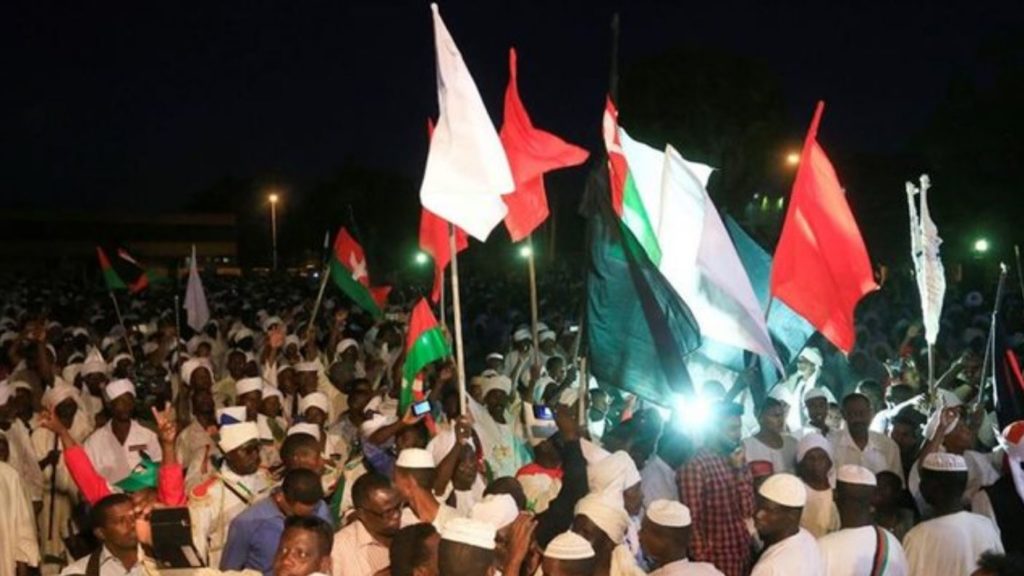
Op-Ed
by Joziah
Thayer
Late
last month al-Bashir’s government began restricting access
to popular social media platforms like Facebook and Twitter which
have been used by demonstrators to coordinate protest in major cities
across Sudan. President Omar al-Bashir has ruled over Sudan for 30
years after coming to power during a military coup in
1989.
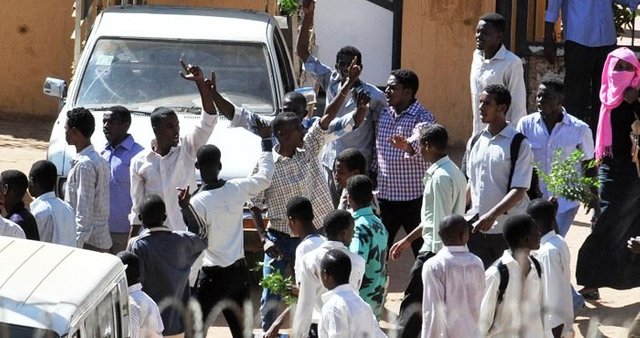
According
to Reuters,
there are 40 million people in Sudan, and 28 million of them have
mobile phones, which has made the Internet a vital tool in combating
media censorship. President Omar al-Bashir’s actions reflect that
of a paranoid lion ready to strike out with brute force against
anyone who threatens his reign. He has arrested political
opponents by the dozens even as the U.N. urged Bashir to release
political foes and protesters imprisoned as a “good faith gesture.”
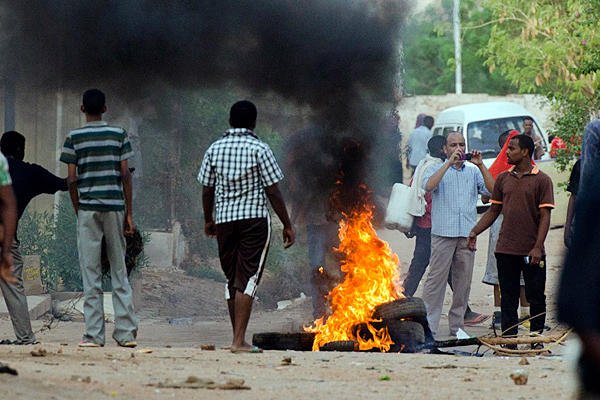
The
protest began in mid-December, and instead of responding like a
stable-minded leader Bashir publicly urged government forces to use
less force, but his forces didn’t seem to listen as they cracked
down on protesters resulting in dozens being killed. January 9th of
this month, more protest erupted
in the city of Omdurman leading to one protester being killed and six
others injured. On the same day, President Omar al-Bashir held a
rally in Sudan’s capital city of Khartoum, where he pledged to stay
in control, seemingly oblivious to daily protest calls for him to
step down.
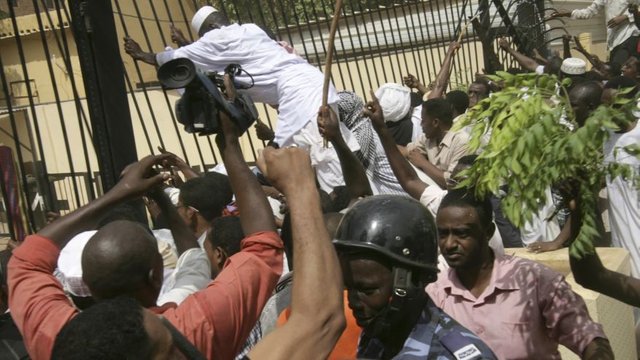
According
to a report from
Human Rights Watch’s Associate Director in Africa, Jehanne Henry,
Sudanese government forces entered hospitals terrifying patients and
started to beat and arrest protesters being treated for injuries as
well as the doctors who were treating them. Government forces were
reportedly heard telling the hospital staff “we don’t care if you
are doctors.” Later that same day, doctor organizations across
Sudan condemned the attacks on hospitals by government forces
and announced they
were joining a nationwide general strike.
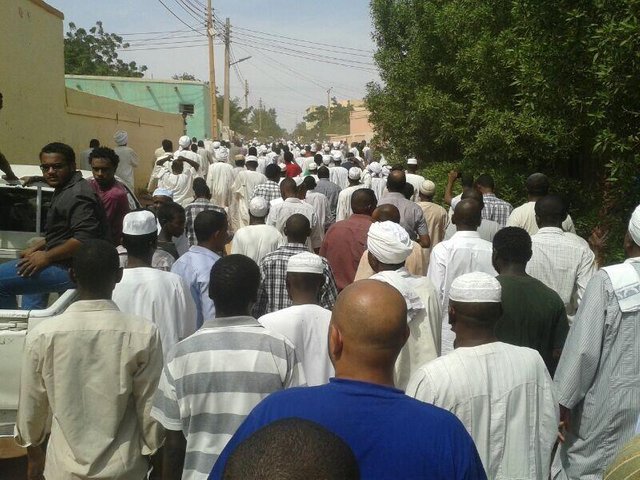
Norway,
the United States, the United Kingdom, and Canada all condemned the
attacks on protesters stating that the actions of Bashir and his
government are being monitored and will dictate how these nations
deal with Sudan in the future. Whenever we have unrest in a region,
Western nations feel as if it is their right to be the policemen of
the world. Why should a nation like the United States that has 25% of
their population in prison be the moral authority of human rights
globally? Sudan does not need the United States or the United Kingdom
– all Sudan needs is a pure rebellion, from the citizens who live
there.
%2Farc-anglerfish-tgam-prod-tgam.s3.amazonaws.com%2Fpublic%2FO3TG7R4GLJFXDCJC45OX4XSMGQ&f=1)
In
recent history when Western powers intervene in unrest in the Middle
East or North African countries it often ends with the citizens who
Western powers are allegedly helping, being displaced from their
homes. The ‘War on Terror’ has killed millions
of Muslims. These interventions rarely help the citizens of the
nations where they intervene. Instead, they are used as pawns for
public acceptance for the very atrocities being committed against
them.
